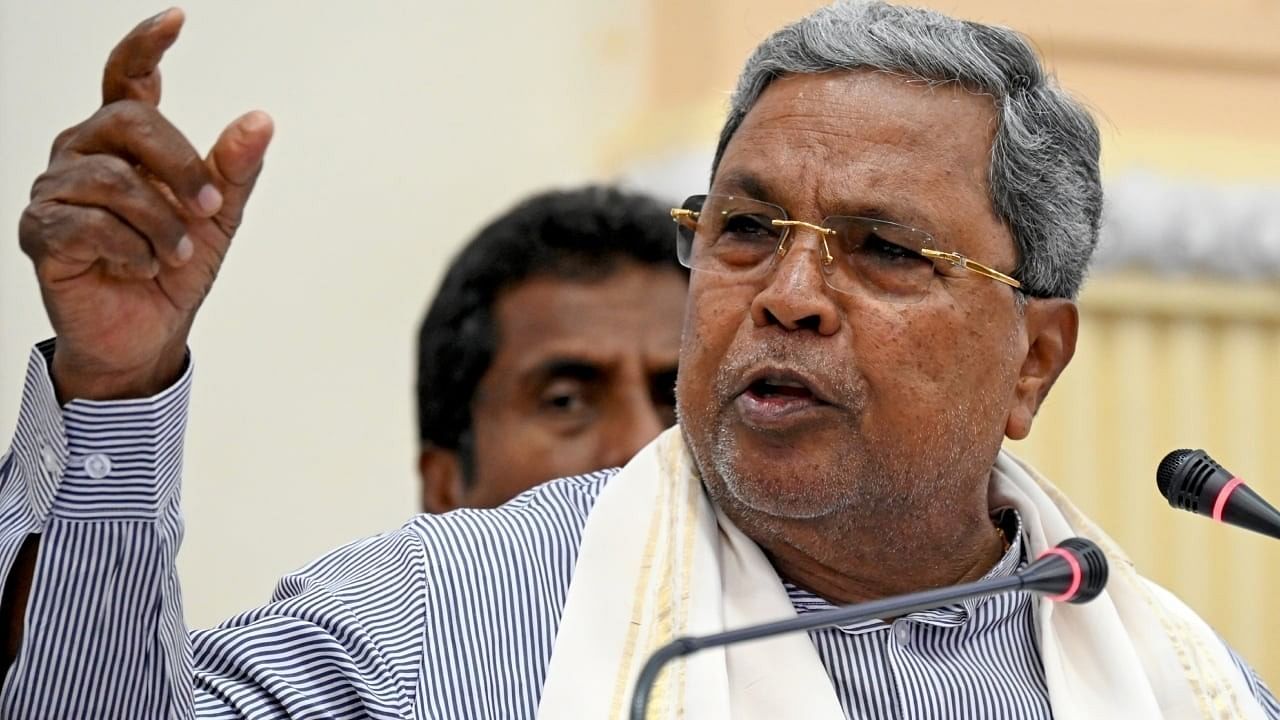
Karnataka Chief Minister Siddaramaiah.
Credit: DH File Photo
Bengaluru: Preserving the natural habitats for the elephants will reduce the human-elephant conflicts that we are witnessing at an alarmingly high rate, said Karnataka Chief Minister Siddaramaiah on Monday.
He was speaking after inaugurating an international conference that coincides with World Elephant Day.
The two-day conference on human-elephant conflict management, which aims to tackle the increased human-elephant conflicts, was organised by the Karnataka Forest department.
The conference will see forest department officials from across India sharing knowledge with academic researchers and civil society organisations to bring about evidence-based inclusive approaches to human-elephant conflict solutions.
At the inaugural event, Siddaramaiah said Karnataka in particular is susceptible to increased human-elephant conflicts as the state has the highest elephant population with 6,395 elephants, which makes approximately 25 per cent of the nation's total elephant population.
“With Karnataka's significant elephant population comes the inevitable challenge of human-elephant conflict. In the last 10 years, the state reported over 2,500 incidents of human-elephant conflicts, resulting in over 350 human fatalities and substantial crop losses,” said the CM.
According to him, the conference is a critical platform where to exchange ideas, explore scientific solutions, and foster international collaboration to address the problem.
“As climate change raises temperatures and changes rainfall patterns, resources become even more scarce and elephants get pushed into new areas, including communal lands. Humans face their own challenges as they must move deeper into elephant territory to collect water or firewood,” said Siddaramaiah.
Therefore, he said this is a challenge with significant ecological, social, and economic implications.
In that context, he said the international conference presents an invaluable opportunity to learn from one another, explore innovative scientific solutions, and discuss sustainable approaches to fostering coexistence between humans and elephants.
“I am confident that the distinguished delegates present here will contribute valuable insights and recommendations to pave the way for a harmonious coexistence between humans and elephants,” he added.
Eshwar B Khandre, Karnataka’s Forest, Ecology & Environment Minister who was also present for the inaugural session on Monday, reiterated that the conference is an attempt towards developing a robust mechanism to address the pressing issue of human-elephant conflict.
“When the idea of the conference was initially floated to me, I was very intrigued by it. I was excited by the prospect that we'll have a chance to come across so many new ideas and setups, which can open up a whole lot of possibilities for us with regards to the conservation of elephants,” added the minister.
The other dignitaries present include Deputy Chief Minister D K Shivakumar, Manjunath Prasad V, additional chief secretary, department of Forest, Ecology and Environment, Government of Karnataka, Brijesh Kumar Dikshit, Principal Chief Conservator of Forest and Subhash K Malkhede, Principal Chief Conservator of Forests (Wildlife) and Chief Wildlife Warden, Karnataka Forest Department.